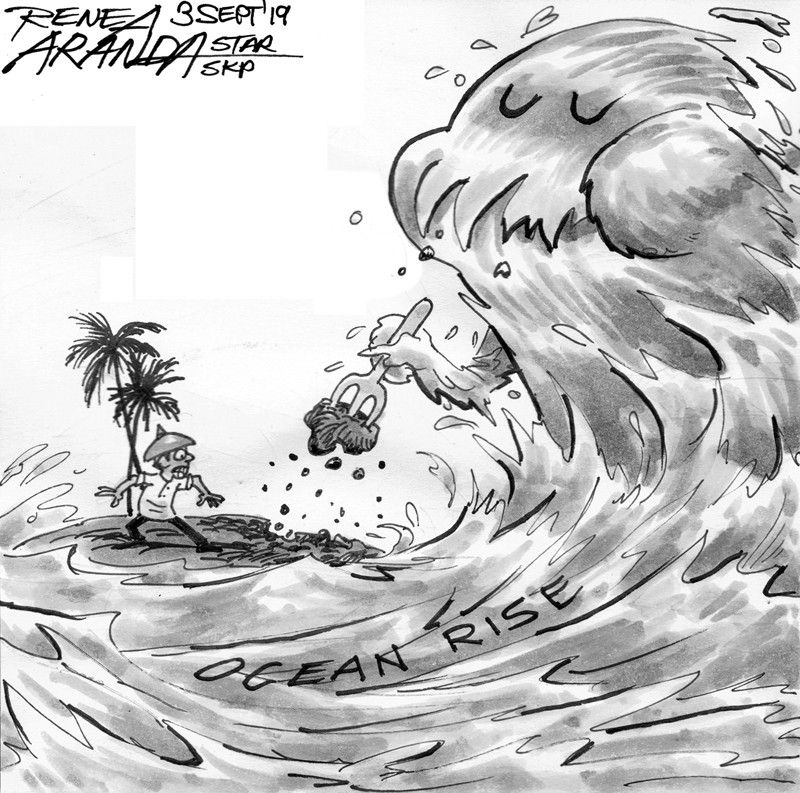EDITORIAL - Digging for water

Since 2003, according to satellite monitoring, Pampanga and Bulacan have been sinking by four to six centimeters or about 1.5 to 2.4 inches every year. The consequences are not confined to the two provinces. The impact is being felt around Manila Bay, where scientists say the sinking is raising the water level so that brackish water is surging inland, inundating entire communities.
Even without this problem, the city of Manila has been steadily sinking gradually. Climate change is accelerating the process, and it can only be aggravated by the problem in neighboring Bulacan and Pampanga, where the principal cause has been traced to groundwater extraction.
A report last week showed that in some parts of Bulacan, the sinking has become so serious that certain villages are now permanently submerged, displacing thousands. The few people who have remained now rely on boats to move around their communities.
In Metro Manila, the government has imposed a moratorium on groundwater extraction through deep wells since 2004. Geologists have warned that foundations are being weakened by the deep wells, causing subsidence or caving in of the ground and threatening communities.
The deep wells were common, especially in cities and towns that now constitute southern Metro Manila, before the two private water concessionaires began upgrading the water distribution network in the National Capital Region. With serious water supply disruptions this year especially in the eastern NCR service area, however, people are again reviving deep wells to augment water supply.
Outside the NCR, deep wells are also used for farms, factories and household water needs. In some communities, communal deep wells are the principal sources of fresh water. Most of the wells are unregulated. With an ever-growing population and increased economic activities, and with no corresponding expansion of fresh water services, extracting water from the ground could continue unabated.
The National Water Resources Board is tasked to enforce the prohibition on groundwater extraction, but the agency has an acute lack of personnel to do this. In areas threatened by subsidence compounded by climate change, the NWRB can coordinate with local government units to enforce the moratorium on deep wells.
Water, however, is the most basic requirement for survival. Unless the government can provide access to a network of safe water supply, people will seek their own sources, even from the ground. They will likely believe that this can cause the ground to collapse only if it actually happens.
- Latest
- Trending



























